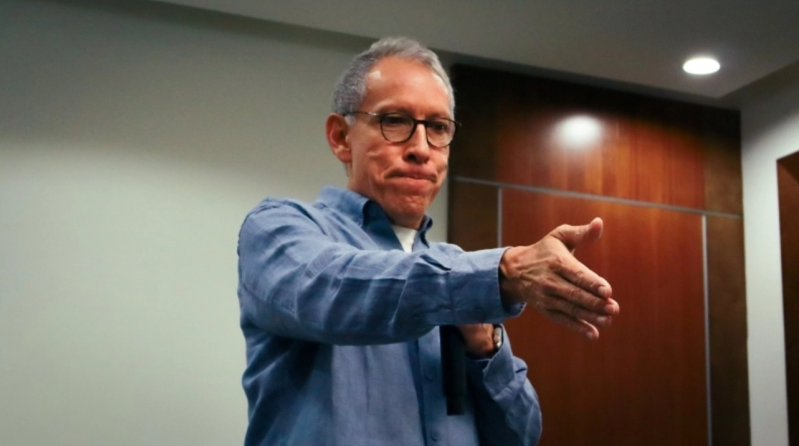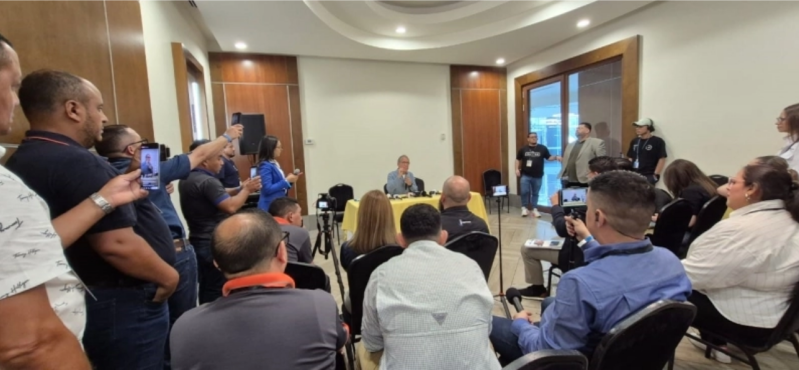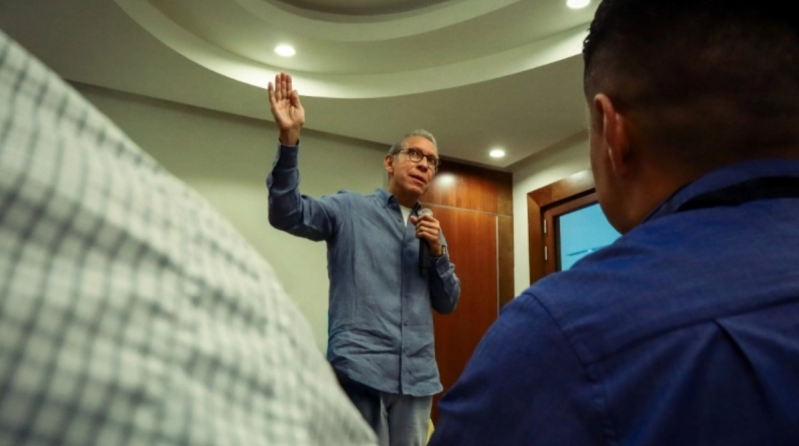
In one of the most candid moments of the COICOM 2025 congress, Mexican singer and pastor Marco Barrientos called for an end to what he described as a growing “celebrity culture” in the evangelical church, warning that it carries dangerous spiritual and emotional consequences.
Speaking at a press conference Tuesday (Sept. 9), Barrientos said his appeal was shaped by a profound personal journey, including a near-death health crisis in 2020, and led him to take practical steps to avoid feeding a system that, he said, “is doing great harm to those who stand on a platform.” Diario Cristiano, Christian Daily International's Spanish edition, is on the ground in San Pedro Sula covering COICOM 2025, which began Monday.
Barrientos explained that his decision to stop taking photographs with the public is part of an intentional effort to reject fame-driven dynamics in Christian ministry. “I want to explain why, and I want to ask you to join me,” he told attending journalists. “The issue of photographs feeds a culture of celebrity instead of a culture of community.”
A Warning to the Christian Music Industry
Barrientos extended his critique to what he called the “Christian music industry,” while emphasizing that it includes “wonderful people.” He cautioned that the system as a whole is “straying from the path I personally want to walk,” and warned against treating ministers as celebrities with “special rights,” a mentality that he said runs contrary to the gospel.
The most striking moment of his remarks came when he described applause and recognition as a “false elixir” consumed by those on stage, often as a way of coping with inner emptiness. “That person […] is drinking from these people—their attention, their affection, feeding their soul with it—because there are issues, there are problems inside, and, ‘please, somebody tell me I’m wonderful, because I feel so conflicted within.’”

Quoting a well-known secular actor to underscore his point, Barrientos added, “That’s why this man said, ‘being a celebrity kills you.’”
He connected this culture to the rise of mental health struggles among Christian leaders. “That’s why there are pastors today who are taking their own lives,” he said, noting that the pressure to maintain a public image creates an unsustainable divide “between what happens on a platform and what real life is.”
A Revelation Born in Crisis
Barrientos said his convictions emerged from a personal encounter with God during one of the darkest moments of his life. He recalled how a severe health crisis in October 2020 nearly cost him his life. “When I almost died, that’s when the Holy Spirit told me, ‘Okay, now you’re going to be still. Come, I want to speak with you.’”

During that period, Barrientos said, God confronted him about neglected areas of his soul, including bitterness and hidden rebellion. He spoke openly about his battle with depression and testified that God’s grace has been healing him.
A Challenge to Christian Communicators
Turning to journalists and media workers, Barrientos urged them to use their influence to reshape the conversation around ministry and leadership. “You have extraordinary power to change the narrative,” he said, encouraging them to ask deeper questions that foster accountability and spiritual health.
“Ask them—in fact, challenge them. How is it possible for someone with recognition like yours to guard their heart and not be contaminated by the spirit of the world? Go ahead, ask that question and see how they answer you.”
He concluded by reminding communicators that their value lies not in visibility but in faithfulness to God, whether “behind the camera or in front of it.” Barrientos closed the session with a prayer for grace so that every journalist might fulfill their calling and ministry.
Originally published on Diario Cristiano, Christian Daily International's Spanish edition.






